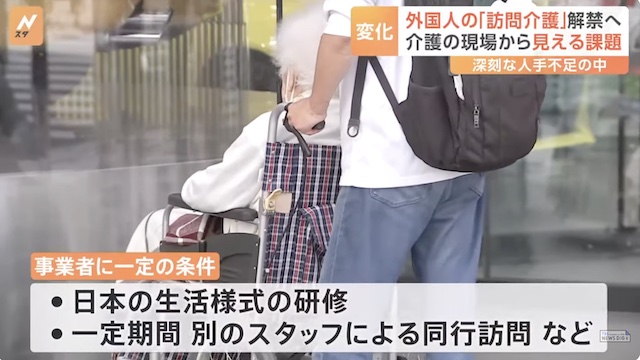TOKYO, Jun 19 (News On Japan) - Japan's Ministry of Health, Labor and Welfare plans to lift restrictions on "home care" for foreign workers with specific skills and technical intern trainees under certain conditions. This change aims to address the ongoing labor shortage in the caregiving sector. What challenges have emerged from the field?

Elma, a 27-year-old Indonesian care worker, provides home care services for a woman with a severe illness, assisting with meals and repositioning her body.
Elma, who loves Japanese culture, came to Japan at 18, inspired by the demand for caregivers and a desire to help. She studied at a specialized school and obtained her qualifications in about three years.
Elma recalls the early struggles with communication and cultural differences, often relying on a dictionary and taking notes.
"In home care, you must handle emergencies by yourself," Elma explains. The one-on-one nature of home care means it has been limited to those with a caregiving qualification, like Elma. Unqualified foreigners have not been permitted to provide these services.
However, due to the severe labor shortage, the Ministry’s review committee approved a draft report today to allow foreigners with specific skills and technical intern trainees to perform home care duties. Employers will need to ensure these workers receive training in Japanese lifestyles and initially accompany other staff members.
Elma, a Muslim, prays five times a day, obtaining permission from her clients to do so during her visits.
Miyazato, president of Pukkuru Care where Elma works, distributes handmade leaflets to help clients understand these cultural practices.
"We take these leaflets and explain to clients, asking for their cooperation," Miyazato says, emphasizing the need for employers to facilitate understanding and acceptance.
With Japan's aging population, mutual understanding becomes increasingly important.
Source: TBS














